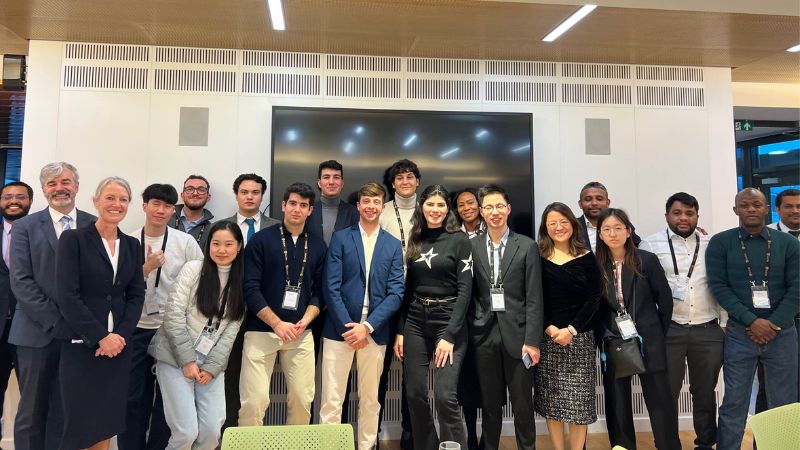Hospitality students take on hotel investment challenge

Ten students from Oxford Brookes Business School Hospitality undergraduate programmes were invited by Glion, London to attend a university challenge on the topic of Hotel Investment, on 26 November 2022.
The trip was fully financed by Glion, including a limousine door-to-door service from the Victoria Station London to their camps.
Founded in 1962, Glion is firmly established among the world’s finest education institutions specialising in hospitality and luxury management.
Glion offer applied business education, combining academic rigor, hands-on practical skills and professional internships – all with a focus on developing the soft skills that are a prerequisite in the modern global economy.
Oxford Brookes students had a great time and enjoyed being immersed in the social activities and broadening their horizons with other Glion students.
Dr Kate Mingjie Ji, Subject Coordinator for Undergraduate Hospitality and Tourism Management said:
“As the team leader and an academic myself, it is a great joy to witness through the students’ performance at the competition how two different education systems have nurtured two distinctive streams of talents. Glion employs a niche, private, high-end and practical education approach, like other major hotel management programs in Switzerland. Almost all their teachings are delivered by major hospitality industry practitioners who pass on their successful cases so it is case-based learning style. In comparison, our Hospitality Management programmes employs a classic approach in which academic staff teach with a stronger focus on theories and reasoning, whereas the industry speakers play a supplementary role. The commonality is that both institutions provide students with a one-year placement opportunity. Despite that a clear cost difference is evident in the two operating models, an important question is which one is more effective in terms of producing qualified graduates who meet the needs of the industry into the future.”
The challenge involved a real-world hotel business brief and a great deal of financial data to analyse. To complete the challenge successfully, our students relied on swift data processing skills, familiarity with the hotel operations and strong knowledge of the trends in the hospitality sector.
Our students demonstrated excellent skills in data analysis and their presentation was fact-driven, practical and convincing.
Dr Kate Mingjie Ji added: “To me both teams are the winners because the industry needs a diversity of talent, achieved through an education system that celebrates it. The experience has strengthened my confidence about the content we teach in our own hospitality programmes and our focus on employability. It also provides fantastic insights into what our students will achieve in their careers.”
